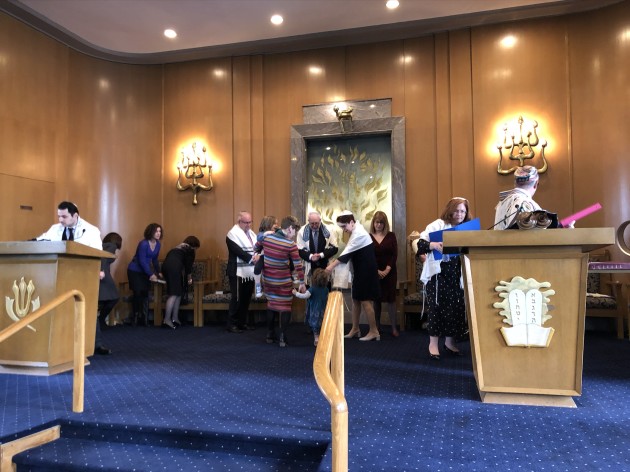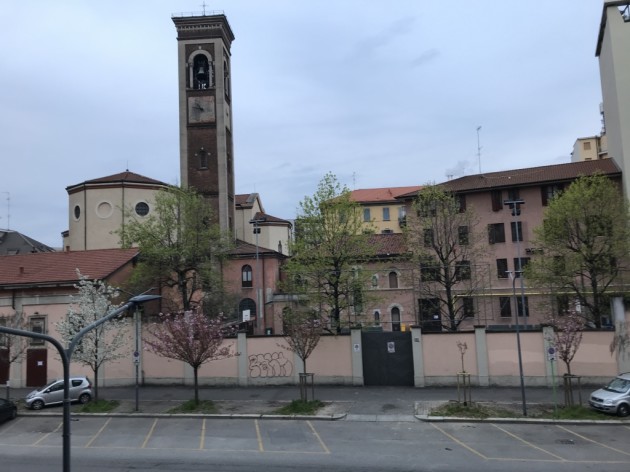The Lilith Blog
March 31, 2020 by Yona Zeldis McDonough
A Memoirist on Making Tragedy Meaningful
- No Comments
March 29, 2020 by admin
Bubbah’s Bat Mitzvah
 We call her by many things: Bubbah, Mom, Meryl. Earlier this year, at 71 years old, she gained a new identity: Bat Mitzvah girl. Recently called to the Torah as a Bat Mitzvah in front of her husband, her kids, her grandkids, and friends, she took this meaningful step after two years of study, and an entire lifetime of deep religious observance. My mother has, for most of my life, been our family’s religious beacon. Growing up, most Jewish kids I knew held on to their Jewish traditions through their grandparents. For our family, my mother, upon the death of her own beloved grandmother when I was five years old, dove more deeply into her faith and became more religious than anyone else I knew, including her own parents. Her energy and enthusiasm for Jewish life, history, culture, food, art, and music never waned. And she always embraced feminist and progressive values through a Jewish lens.
We call her by many things: Bubbah, Mom, Meryl. Earlier this year, at 71 years old, she gained a new identity: Bat Mitzvah girl. Recently called to the Torah as a Bat Mitzvah in front of her husband, her kids, her grandkids, and friends, she took this meaningful step after two years of study, and an entire lifetime of deep religious observance. My mother has, for most of my life, been our family’s religious beacon. Growing up, most Jewish kids I knew held on to their Jewish traditions through their grandparents. For our family, my mother, upon the death of her own beloved grandmother when I was five years old, dove more deeply into her faith and became more religious than anyone else I knew, including her own parents. Her energy and enthusiasm for Jewish life, history, culture, food, art, and music never waned. And she always embraced feminist and progressive values through a Jewish lens.
- 1 Comment
March 28, 2020 by Yona Zeldis McDonough
The Light After the War: Jews in Caracas
Two best friends jump off a train heading for Auschwitz, leaving their mothers still on board. They survive the rest of the war in hiding, and when peace is finally declared, make their way to Naples, then Ellis Island and finally Caracas, trying to rebuild their shattered lives. This actually happened to Anita Abriel’s mother, and she used it as the basis for her newest novel, The Light After the War (Atria Books, $27). She talks to Fiction Editor Yona Zeldis McDonough about how and why she transformed fact into fiction.
- No Comments
March 27, 2020 by admin
Between Purim and Passover, a Plague
Where anxiety and fear keep us unsettled, it is important to try to keep our emotional and spiritual equanimity.
It has not escaped my attention that the pandemic is happening between Purim and Passover. Purim, like Yom Kippur, is when we read a story about chance. The tables get turned for the better —that the Jews are saved not destroyed
We acknowledge that fate can change at any given moment and we pray for it turns in our favor…
We are also headed into Passover where it took ten plagues to get us out of Egypt. Yes, people died with each plague and we learn that we don’t sing Hallel because the Egyptians drowned in the Red sea and their lives also belong to the Holy One. Yet that story of liberation has fueled many a tradition and given many hope.
- No Comments
March 27, 2020 by admin
In Italy, Our Lockdown Continues
 MILAN, March 2020—Today the news announced that the Carabinieri, the Italian military police, would be patrolling the streets and giving fines to anyone who didn’t have an essential reason to be out.
MILAN, March 2020—Today the news announced that the Carabinieri, the Italian military police, would be patrolling the streets and giving fines to anyone who didn’t have an essential reason to be out.
They also announced that grocery stores, the only businesses still open besides pharmacies, would be limiting their hours, so I decided that I should go out and get more food while I still could. Since we don’t have a car, I asked my teenage daughter to come so that she could help me carry everything back. She gladly accepted, since the three weeks of lockdown in a 390 square-foot apartment have proven to be quite a strain on our family dynamics. With our masks in hand, we left our apartment and walked onto the eerily empty street. It was a glorious spring day in Milan, trees full of colorful blossoms, a gentle breeze, birds chirping, and – just for a moment – everything felt normal.
- 1 Comment
March 26, 2020 by Eleanor J. Bader
Feeding People in Virus-Stricken New York
It’s Monday morning, the start of the second week of New York City’s attempt to contain the coronavirus, and Alexander Rapaport, founder and Executive Director of MASBIA, (MASBIA.org) New York City’s only kosher food pantry and feeding program, is gearing up for an exceptionally busy week.
“Shortly after Hurricane Sandy, City Councilmember Brad Lander said—and I’m paraphrasing—that in times of crisis some people will fall apart while others will be brave and help out,” Rapaport begins. “We are trying to be the helpers in this time of COVID-19. In the face of all odds, we are plowing ahead. But it’s not easy.”
- No Comments
March 26, 2020 by Alice Sparberg Alexiou
Warmth from an Afghan Blanket
Coronavirus has suddenly changed our lives, so quickly and in ways so profound that we are just beginning to grasp how. The thousands of mundane acts that we do every day—grabbing the overhead bar on the subway, pushing a button in an elevator, sitting down at a conference table with work colleagues—are now possible sources of contagion. So are the human connections our souls need and crave. Kissing our grandchildren or hugging a friend are acts now fraught with danger. We must keep our distance from everyone and everything, we are now told. Otherwise, we may catch the illness, and get horribly sick. Or die. Yes, die.
- No Comments
March 24, 2020 by Yona Zeldis McDonough
Real Life Mysteries: A Lost Voice and Communication With the Dead
Everyone loves a great mystery on the page, but what about in real life? Victoria Zackheim decided to ask a group of writers exactly that question and she collects their answers in the new volume, Private Investigations: Mystery Writers on the Secrets, Wonders and Riddles in Their Lives (Seal Press). Caroline Leavitt’s mystery began with her losing her voice, and the endless medical quest she embarked on to find out why. Hallie Ephron was prompted to write about a friend’s belief that she could communicate with her dead brother. Both of these writers talk to Fiction Editor Yona Zeldis McDonough about how their essays were informed by their experience as Jewish women.
- No Comments
March 23, 2020 by Alexis Tomarken
Even in Isolation, Don’t Forget to Say Goodnight
On my morning commute to my psychotherapy practice, I overhear two young women on the F train. ”What if I get sick, will you help me with the kids?” The other says, “We’re all on our own with this.” The first drops her head, “Right, yes. We are on our own.”
Medical containment of COVID-19, defined by social distancing and voluntary quarantines, is isolation from others who may be a threat to your existence.
- No Comments
March 16, 2020 by Liba Vaynberg
Notes from a Pandemic: On Chains of Isolation, and Transmission
I’m alone in my apartment, trying to understand what a city is. The internet assures me only that there is no clear answer—even the United Nations has three definitions for what constitutes a city. I’m fixating on population size, but even that’s slippery. An “urban area” can apparently be distinguished from a “metropolitan area,” but somehow the largest “urban area” in the United States is called the “New York metropolitan area” (wait, what?) which has recently been more broadly identified as a “metropolitan statistical area,” throughout which one large urban center spreads its web but the whole of which is not legally incorporated as a city. I look at the satellite image of a bright core and then yellow sparks clustered along the Atlantic Ocean, spreading. My head aches; all I see is a never-ending chain.
- 1 Comment
 Please wait...
Please wait...